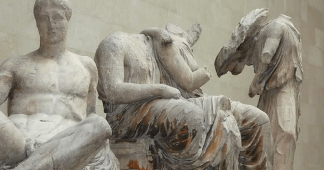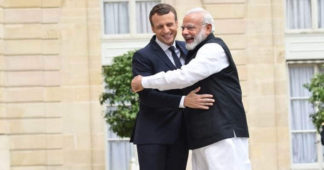France is returning artworks acquired in colonial times to Benin. Germany is also open to restitutions. How are other European countries addressing the issue?
Nov.9, 2021
They are works of art of great symbolic value — intricately carved thrones, richly decorated doors and impressive statues.
Each of the statues, for example, is a symbolic representation of a monarch of the former kingdom of Dahomey: King Glele as a lion-man or King Behanzin, the last to rule over the kingdom before French colonization, as half-human, half-shark.
In a symbolic act, France is now returning these objects to Benin in West Africa, where the former kingdom of Dahomey was located. It is the first significant return by France to its former colony since it gained its independence in 1960.
“It’s a historic moment for both countries,” art historian and entrepreneur Marie-Cecile Zinsou told DW. Zinsou is president of the Zinsou Foundation, which promotes contemporary art in Africa and leads cultural and educational initiatives. In 2014 she also opened the first museum for contemporary art in Benin.
She has been closely following the current restitution process. “I am very proud, as a citizen of both France and Benin, to witness an intelligent dialogue that has long been unbalanced.”
Continue reading at www.dw.com
We remind our readers that publication of articles on our site does not mean that we agree with what is written. Our policy is to publish anything which we consider of interest, so as to assist our readers in forming their opinions. Sometimes we even publish articles with which we totally disagree, since we believe it is important for our readers to be informed on as wide a spectrum of views as possible.











